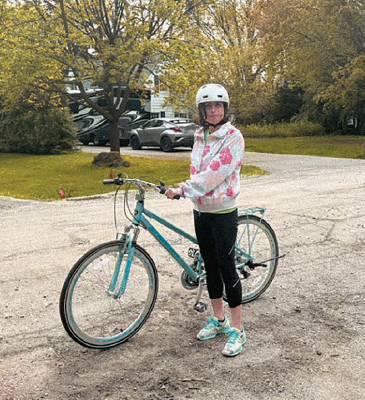In her latest book, York University’s Patricia Wood, a professor in the Faculty of Environmental and Urban Change, questions the ideologies that surround land and title arrangements in British Columbia.

The book, titled Unstable Properties: Aboriginal Title and the Claim of British Columbia, was co-written with York alumnus David Rossiter, a professor at Western Washington University.
Wood and Rossiter’s book reframes the issue of land claims as historical attempts by the Crown in B.C. to acquire Indigenous territory.
In a Q&A with graduate student researcher Danielle Legault, Wood talks about her new book.

Q: How does this book build on your previous research work, and what inspired you to write it?
A: David Rossiter and I have been researching the historical, political and legal geography of Indigenous title in B.C. for about 20 years. It started with a project on the referendum that the provincial government, under (former) Premier Gordon Campbell, held in 2002 about the “principles” of treaty negotiations. That became our first published article together, in The Canadian Geographer, in 2005. Several more articles, presentations and op-ed pieces followed on specific aspects, but there was a larger story that we wanted to tell that needed a book-length manuscript to
do properly.
Q: What inspired your choice of British Columbia as the site of exploration in this book?
A: British Columbia is an important site of Indigenous-settler relations because the vast majority of the territory the Crown claimed was never “conquered” nor ceded by treaty. The Crown’s claim, even according to its own law, is without solid moral or legal foundation. It is thus inherently unstable.
Q: Can you discuss the unique approach of Unstable Properties in reframing the topic of Aboriginal claims to Crown land?
A: We would emphasize that the question is one of Crown claims on Indigenous land, not the other way around. This is at the heart of our approach. It has always been the Indigenous claim that is subjected to scrutiny, as a “burden” on the Crown claim. This is backwards; it is the legitimacy of the Crown’s claim that needs to be examined. It is Canada that needs to reconcile its actual history and present with its alleged principles of democracy and justice.
We also want to emphasize that what progress has been made on resolving these questions and moving forward towards a more just relationship should be credited to Indigenous individuals and organizations who did the political and legal work to compel the Canadian state to – start to – recognize the hypocrisy, injustice and violence of settler-colonial land claims.
Our argument about the instability of the settler claim to Indigenous land in British Columbia isn’t intended to suggest British Columbia is exceptional and everywhere else is fine, but rather that it exposes the problems of settler-colonial claims across Canada, and should lead us to question what existing treaties mean, under what circumstances they were established, and what kind of relationship we want to pursue from here.
Research is not politically neutral, and a lot of talk about “reconciliation” can be pretty superficial. We’re trying to contribute to a path that is more meaningful and material, where Indigenous sovereignty and land rights are part of the plan. Facing our history and decolonizing our thinking is not just in our publications; bringing this to the curriculum and the classroom is just as important.
Q: Having completed this book, how do you see your work moving forward in the future?
A: We know we still have miles to go, and Dave and I plan to continue to pay attention to specific cases that Indigenous organizations raise to see where we can help with research that exposes the instability of the settler claim, in hopes that it helps pressure settler governments to come to the table and negotiate honestly and fairly.
Read more

Meet York U’s Commercialization Fellows
Four budding researchers aim to bring innovative products to market

New organized research unit of early success, impact
A new Organized Research Unit (ORU) in its infancy but is already driving positive change

York health researcher brings a trauma-informed lens to use sport for good
How women find empowerment and independence on two wheels

York engineers develop mobile app to improve the safety of city cycling
Using tech to help take the yikes out of bikes
